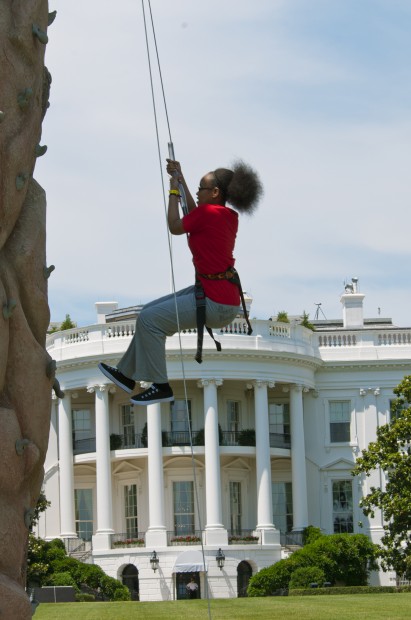We have much more to do and your continued support is needed now more than ever.
NWF Needs Your Help to Prevent the Fiscal Cliff

Photo: Susan McElhinney/NWF
- Further cuts to the National Wildlife Refuge System—already operating on a budget of just $3.24 per acre—will result in closed refuges and lost revenue, among other impacts.
- The State and Tribal Wildlife Grants program, which provides crucial funding for preventing wildlife from becoming endangered, will be cut by about $5 million, leaving only $56 million to protect wildlife in all 50 states.
- The Land and Water Conservation Fund, which has provided funding for countless National Parks, wildlife refuges, and other public lands, will be cut by about $20 million, almost certainly delaying or halting crucial conservation projects.
- The Environmental Protection Agency’s Environmental Programs and Management funding, which supports a variety of environmental protection and restoration programs—including critical Clean Water Act and Clean Air Act protection programs—will be cut by $220 million, undermining fundamental federal regulation and putting our access to clean air and water at risk.
- The Department of Energy’s Energy Efficiency and Renewable Energy Program, which makes investments in clean energy essential to our nation’s environment and economy, will be cut by $148 million.
- The Sport Fish and Wildlife Restoration Funds—which are used to support wildlife and fisheries conservation—will be cut by $34 million and $31 million respectively, endangering countless species and restricting the activities of the 37 million hunters and anglers who contributed $90 billion to our economy in the past year alone. These come from a trust fund paid into by sportsmen for sportsmen via an excise tax on fishing, hunting, and boating equipment; that even funds already reserved for conservation are subject to deep cuts demonstrates the fundamental unfairness of sequestration.
Very rarely are our legislative fights this black and white: we compromise, we battle over minutiae, we strive to see strong conservation policies implemented, yet so often settle for good enough. In this case, however, our message is crystal clear: the sequestration cuts cannot happen.
![]() Here in D.C., NWF’s crack team of conservation advocates is doing their best to put pressure on Congress. But we need your help and your voices—act now by contacting your Senators and Representatives today to let them know that sequestration will have a huge impact on the conservation programs you care about, and urge them to work towards a balanced approach to raise revenue, reduce the deficit, and prevent these cuts.
Here in D.C., NWF’s crack team of conservation advocates is doing their best to put pressure on Congress. But we need your help and your voices—act now by contacting your Senators and Representatives today to let them know that sequestration will have a huge impact on the conservation programs you care about, and urge them to work towards a balanced approach to raise revenue, reduce the deficit, and prevent these cuts.
Since starting at NWF’s D.C. office in September, I’ve come to enjoy visiting Capitol Hill: testing which offices have the best local souvenirs (personally, it’s a close call between Alabama’s peanuts and Pennsylvania’s Hershey chocolate), which offices feature the most surprising wall décor (a polar bear skin and a functioning canoe are just the tip of the iceberg) and get the most into the holiday spirit (currently, the office of Guam’s at-large congressional district is putting everyone else to shame). But my favorite part is knowing that I am speaking on behalf of the over 4 million gardeners, hikers, boaters, sportsmen, and wildlife enthusiasts that are members and supporters of NWF.





















